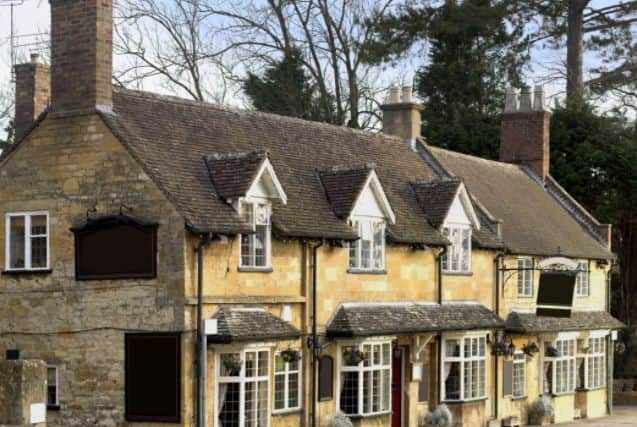The Yorkshire family who became Britain's leading hangmen


Albert Pierrepoint is Britain's most famous hangman, while his father and uncle achieved similar notoriety in their day.
The family had strong Yorkshire links - and as being a Home Office executioner was only a part-time career, took on a number of interesting day jobs.
Advertisement
Hide AdAdvertisement
Hide AdThe hanging tradition in the family began with Henry in 1901. He grew up in Clayton, near Bradford, and worked at a worsted mill and as an apprentice butcher, later moving to Manchester after marrying.


Henry had written repeatedly to the Home Office to volunteer his services as an executioner, and he was appointed to the official list in 1901. He served as an assistant hangman for four years until 1905, when he was awarded the title of principal executioner. A year later, all eight hangings in the country were carried out by Henry. He later persuaded his elder brother Thomas to train as a hangman, and taught him the craft himself in a stable, using rope and sacks of corn.
Thomas had worked as a stone quarryman in Bradford and had even been involved in an illegal bookmaking racket before becoming an executioner. He joined the list in 1906, and actually ended up having a more distinguished career than Henry.
Henry's career ended in disgrace by 1910, when he turned up drunk to a hanging and started a fight with his assistant. The Home Office struck his name from the approved list, and he was never invited to oversee a hanging again. He returned to other jobs, which included a stint working in Huddersfield's gasworks, and died in 1922.
Advertisement
Hide AdAdvertisement
Hide AdThomas's own career went from strength to strength, and although it was Henry's son Albert who followed in their footsteps, it was his uncle whom he took most of his inspiration and advice from.


He did not stop work until 1946, when he was in his seventies, and is thought to have conducted 294 hangings. During World War Two, he became the US Army's official executioner, hanging 13 American soldiers at Shepton Mallett military prison. Albert was his assistant by this time.
His health and eyesight were called into question by 1940, and he was eventually removed from the Home Office list. He died in Bradford in 1954, at the age of 83.
The baton had now passed to Albert. He was born in Clayton in 1905, and worked in a grocery store before qualifying as an assistant executioner. He became chief hangman in 1941.
Advertisement
Hide AdAdvertisement
Hide AdAlbert grew up in Huddersfield, and decided at the age of 11 that he wanted to become a hangman, after becoming close to his uncle on family visits. He was working in the mills at 12, and when he first wrote to the Home Office in 1931, he was told there were no vacancies.
The resignation of another hangman meant Albert was invited to interview at Strangeways Prison shortly afterwards, and he underwent training at Pentonville in London for a week. He took charge of his first execution, that of gangster and nightclub owner Antonio Mancini, in 1941. Soon after, he hanged a German spy.
He married his wife without telling her of his side occupation, and she only found out after he returned from a double hanging in the overseas territory of Gibraltar in 1944. After the war, he oversaw the executions of large numbers of Nazi war criminals in Europe, and the boost to his income allowed him and his wife to buy a pub in Lancashire.
He resigned in 1956 over a dispute. Albert had gone to Strangeways to hang a prisoner who was given a reprieve just 12 hours before, when the execution equipment had already been prepared. Albert claimed his full fee, but the local under-sheriff offered only £23, as hangmen were only supposed to be paid if an execution was completed.
Advertisement
Hide AdAdvertisement
Hide AdThe Prison Commission refused to intervene, and Albert was said to be 'insulted' by the under-sheriff's final offer of settlement, which included hotel expenses. The Home Office actually asked him to reconsider his decision to resign, as he had established an unrivalled reputation for efficiency, but he did not change his mind and retired to the seaside town of Southport, near Liverpool, instead.
The press had offered him large sums of money to serialise his memoirs, but pressure from the Home Office eventually led to the offers being withdrawn. He died in 1992.